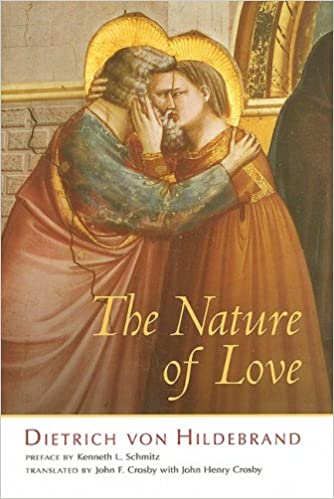1
/
of
1
St. Augustine's Press
The Nature of Love (HC)
The Nature of Love (HC)
Regular price
$60.00 CAD
Regular price
Sale price
$60.00 CAD
Quantity
Couldn't load pickup availability
Early on Dietrich von Hildebrand distinguished himself as a thinker with an unusual understanding of human love. His books in the 1920s on man and woman broke new ground and stirred up fruitful controversy. Toward the end of his life he wrote a foundational book on love, The Nature of Love. He had in fact been preparing all his life to write this work; he was so drawn to the philosophical analysis of love that his students long ago had dubbed him doctor amoris, the doctor of love. This great work, the mature fruit of von Hildebrand’s genius, is now available for the first time in English, ably translated and introduced by the philosopher John F. Crosby, who had been a student of von Hildebrand.
The Nature of Love is a masterpiece of phenomenological investigation. Not since Max Scheler’s work on love have the resources of phenomenology been so fruitfully employed for the understanding of what love is and what it is not.
The Nature of Love is a masterpiece of phenomenological investigation. Not since Max Scheler’s work on love have the resources of phenomenology been so fruitfully employed for the understanding of what love is and what it is not.
Share


